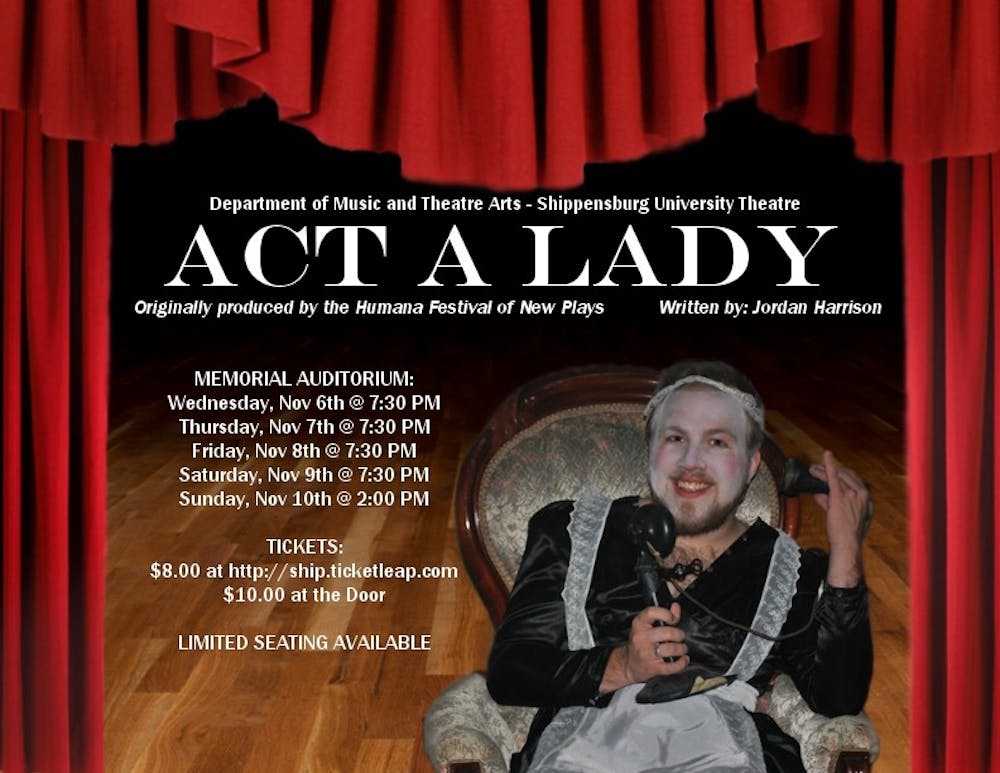Shippensburg University’s Department of Music and Theater Arts will be staging the two-act play “Act a Lady” by Jordan Harrison, originally produced by the Humana Festival of New Plays in 2006.
“Act a Lady” depicts a small rural community during the Prohibition era. The customs of the community are fairly traditional. Family, religion, hard work and financial stability are core values.
In a lot of ways, the audience for the play in Shippensburg reflects the culture of the community in Harrison’s play.
Harrison’s comedy is much more than parody, which makes it a unique and timely piece of writing. His play uses a community theater production as an opportunity to examine gender identity and explore how we learn to “act” our gender.
In “Act a Lady,” Harrison pays homage to the Ridiculous Theatre traditions of Charles Ludlam. Harrison’s intention is to use cross-gender performance for more than laughs. Acting a part becomes a means for self-actualization.
“One of the persistent problems actors face is the separation between character and self. Being a man and playing a woman is perhaps the highest statement of this struggle.
“Act A Lady” allows the actors to perform that problem, the identity of the actor, for the audience,” Paul Deichman, who portrays both Casper and Greta the maid said.
While this has relevance from a personal and social perspective, Harrison’s big idea is the transformative power of art.
The theater is about transformation and changing identity. The characters who participate in the community show are all transformed by their participation.
“In fact, every theater person that I know who has done this play cherishes it, for it speaks to us about what we love and why we do it. It celebrates our history and tradition,” said Paris Peet, theater professor at SU and director of the show.
When the men of a small Prohibition-era town decide to put on a play dressed in “fancy-type, women-type clothes,” the whole community is affected: gender lines blur, eyebrows raise, identities explode, and life and art are forever entangled.
It is a thoughtful, exuberant Midwestern fable about the woman in every man, the man in every woman, and the power of theater to uncover both.
“And, I should mention, it’s funny. Funny is good. Funny is healthy. Did I mention the accordion music? Yeah, baby. It’s a comedy with a whole bag of tricks,” Peet said.




The Slate welcomes thoughtful discussion on all of our stories, but please keep comments civil and on-topic. Read our full guidelines here.